Haya
Dear Friends,
I would like to introduce you to Haya, one of the wonderful people working at the Lavender Boutique Hotel (previous postcard on the hotel here).
Haya went to high school at the Ramallah Friends School, and graduated from Birzeit University in 2017 with a major in Journalism and a minor in Sociology.

Haya recently lost her full-time job as a fact-checker at an organization that had been funded by USAID. She used to work part-time at the hotel, but now she’s full-time here. (Not great for her, but wonderful for me.)
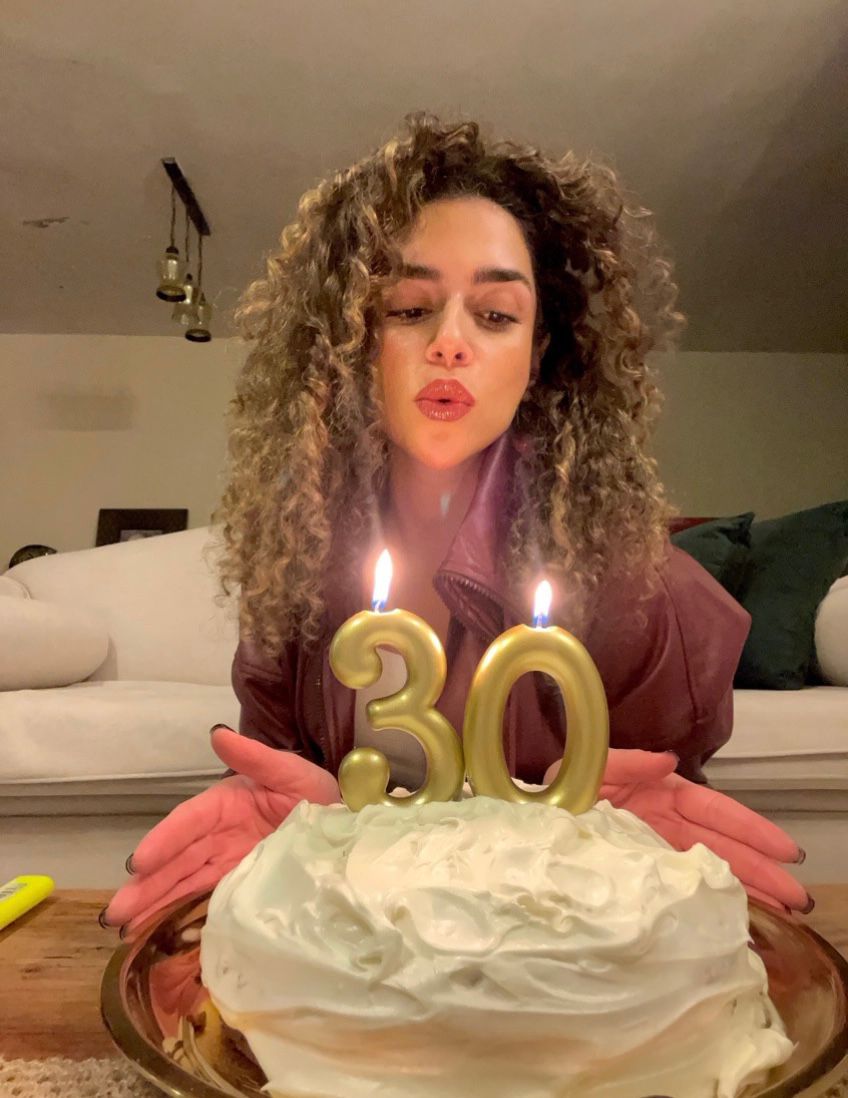
Haya and I bonded soon after I arrived here. As you can see, she has gorgeous curly hair. So I asked her for recommendations of curly hair products. She recommended a local brand, Sobonir, which I purchased yesterday.

Haya is a Jerusalem resident. So, on her days off, she visits the Church of the Holy Sepulcher, and often enjoys the beauty of the Old City. I haven’t been to Jerusalem on this trip, because I have been advised not to move around the West Bank due to large numbers of checkpoints and violence from Israeli settlers. This is just a minor inconvenience to me; for people who live here, it’s an enormous, life-threatening hardship.
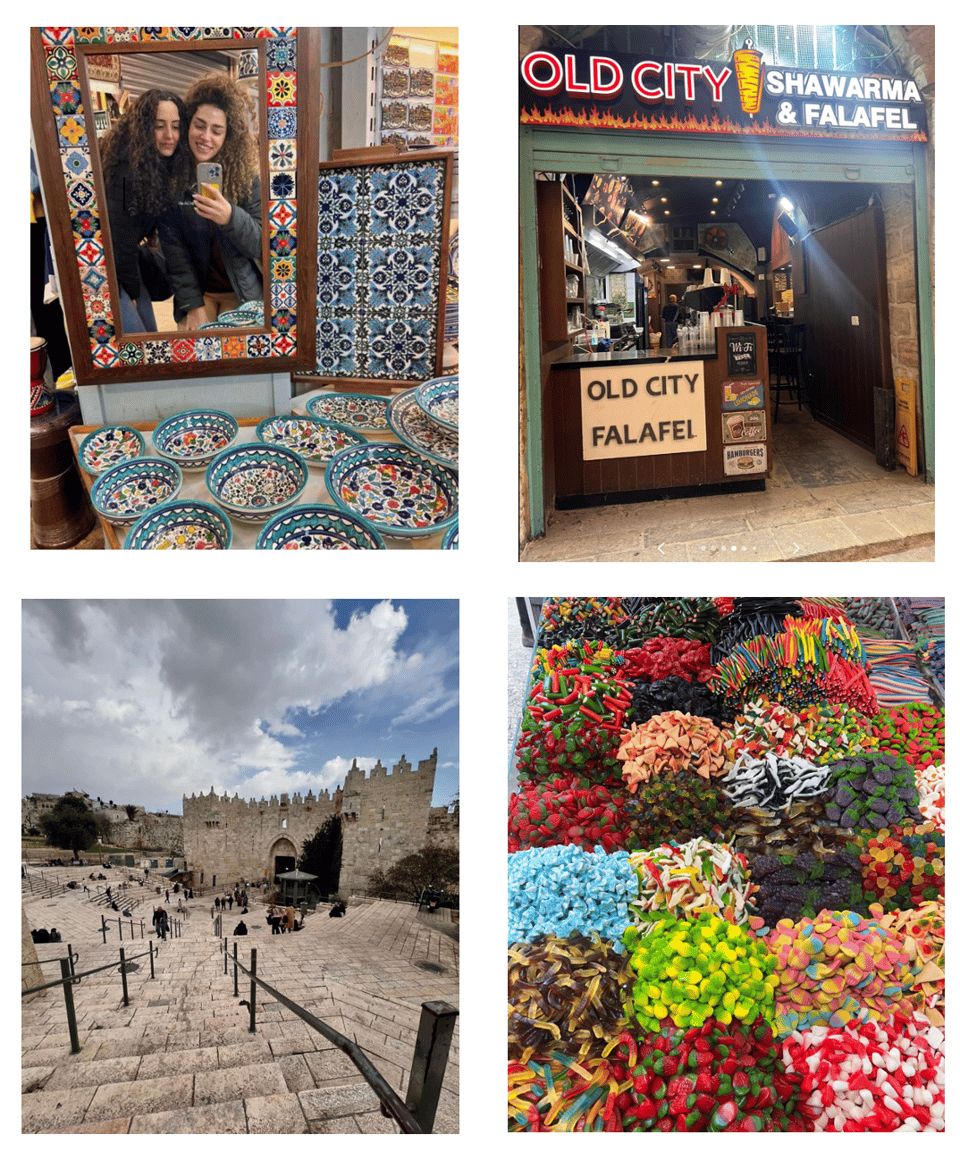
To get to Ramallah from Jerusalem, Haya takes a bus. For the return trip to Jerusalem, the bus stops at a checkpoint. All passengers must get off the bus to show their documents to Israeli soldiers. (Pregnant women and people over 70 may stay on the bus.) Then the passengers get back on the bus to proceed.
Haya loves photography, especially sunsets. And she loves working out, which she does most mornings at 7:30 with her sister Olga.
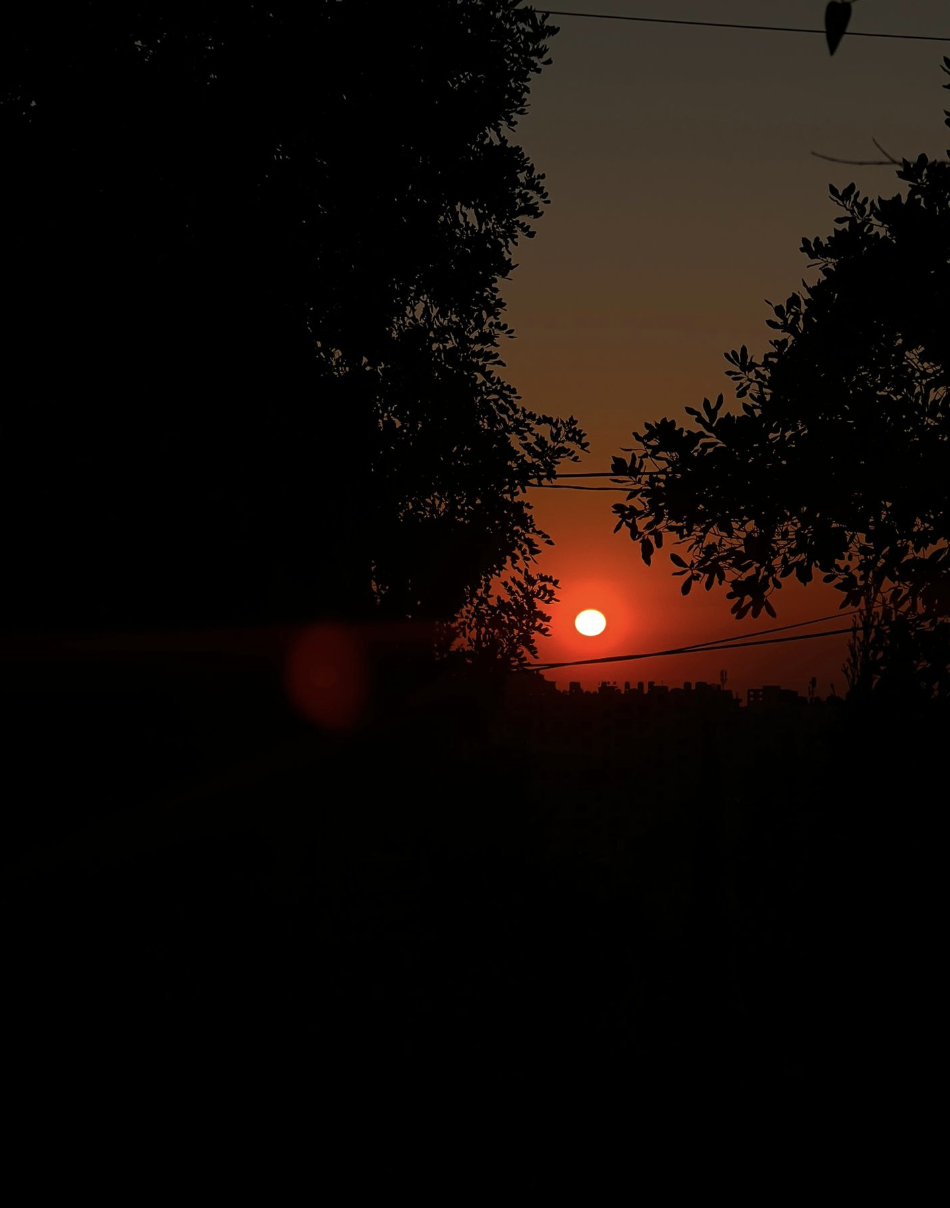
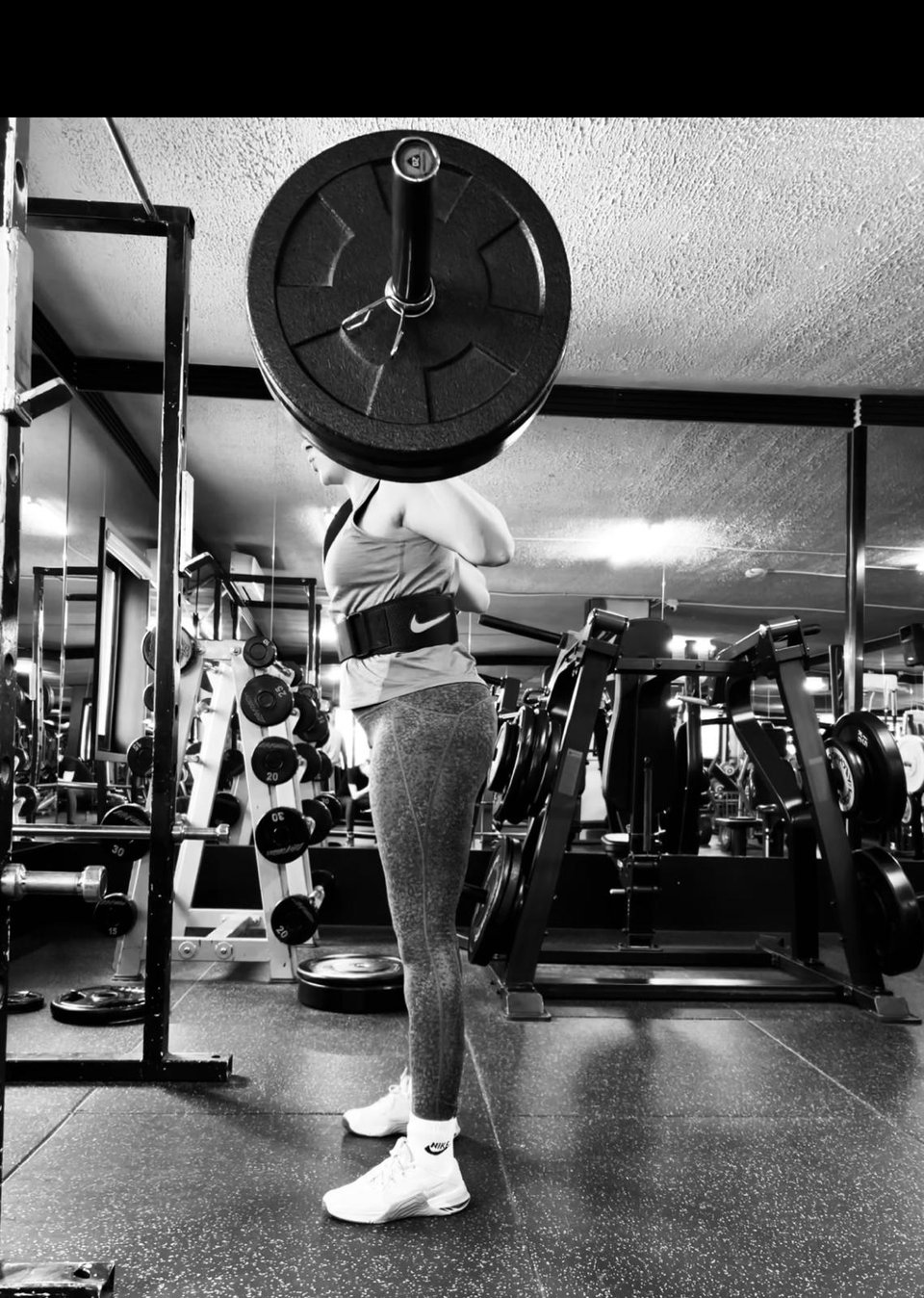
Haya also enjoys creating reels (here’s one from Jerusalem, one from the gym, and one with sunsets). She likes listening to music, and dancing. She taught me about a Lebanese singer who’s popular here: Nancy Ajram has a song called ‘Oul Tani Keda’ - which means ‘say it one more time’
🎶 🎶 🎶
This song includes the words ‘Nancy, I love you’… so Haya often walks around singing that part: ‘Nancy, I love you!’
❤️
Special thanks to Haya, and her family, for sharing these photos and stories.
More information about Jerusalem residency:
As I noted before, Haya is a Jerusalem resident. This is one of four citizenship/residence statuses that Israel confers on Palestinians here - each of which comes with different rights, and none of which are the same as Jewish Israeli citizens.
Israel issues ID cards for all these statuses, including
Resident of Jerusalem
Resident of the West Bank
Resident of the Gaza Strip
Palestinian residents of Jerusalem are not citizens. But unlike West Bank Palestinians (and Gazan Palestinians), they are generally permitted to use Israel’s Ben Gurion Airport. They are entitled to yellow license plates (described in this post), and can drive on all highways. However, Israel has a policy of Judaization, which aims to limit the number of Palestinians who are considered Jerusalem residents. There are many laws that ultimately force Palestinians to leave the city, including expensive fees. Jerusalem residents must pay taxes to the Israeli government even though they cannot vote in national elections. Unlike citizens, if a Palestinian Jerusalem resident leaves the city, they risk forfeiting their residency. Israeli authorities check that residents are indeed living in their Jerusalem homes.
What’s more, Israel rarely issues building permits to Palestinians living in Jerusalem, leaving people with what Israel considers illegal construction. Israeli authorities regularly demolish homes built by Palestinians in Jerusalem (and the West Bank) if they don’t have Israeli construction permits - which are nearly impossible to obtain. Owners have the option of paying the Israeli government to demolish their own homes, or to do it themselves. Yes, that’s right - they are required to pay to have their own home destroyed.
When Israel revokes someone’s Jerusalem residency, they do not issue them another ID, leaving people without any legal status at all - unable to travel, to work, to have any legal status such as marriage, etc.
All Jews from anywhere in the world have the right to move to Israel and to acquire Israeli citizenship. But for Palestinians who have been on their land for decades, if not centuries, status as a Jerusalem resident is precarious. Jerusalem residency status does not automatically pass from parents to their children. Jerusalem IDs must be updated regularly. The government has wide latitude in determining who is a resident, and they can consider factors such as a requirement to “show loyalty”. Jerusalem residents have limited ability to leave the country and to return, all at the discretion of the Israeli government. This is part of life under occupation.
In the next postcard, you’ll meet Haya’s friend and colleague Majdal, a West Bank resident. The two met here at the hotel, and became close friends.
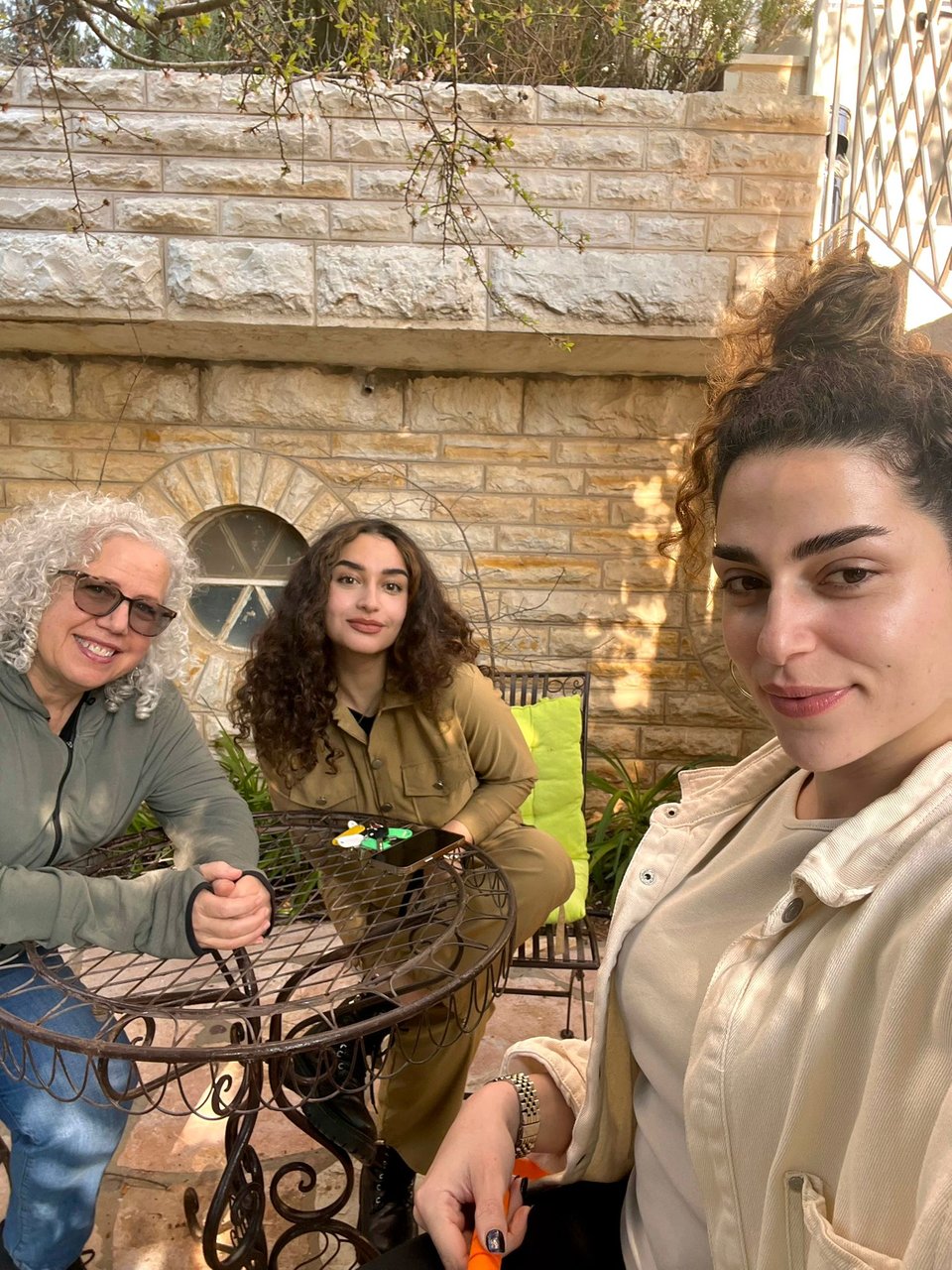
Salaam,
Nancy